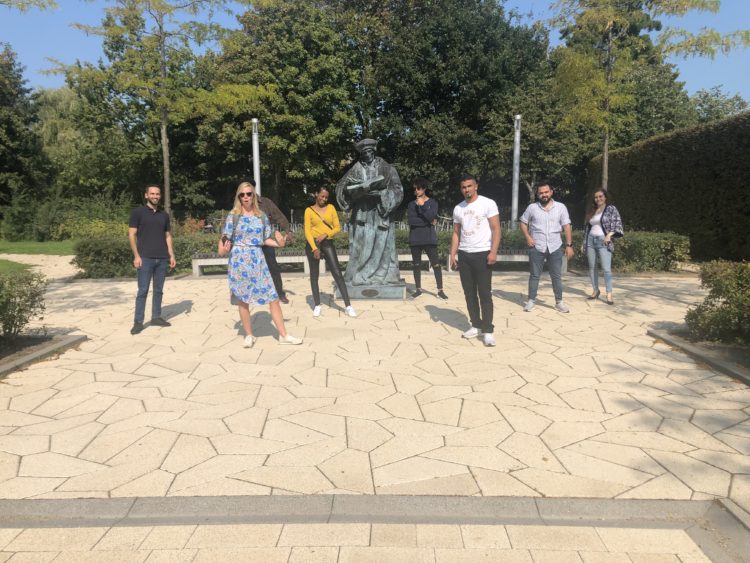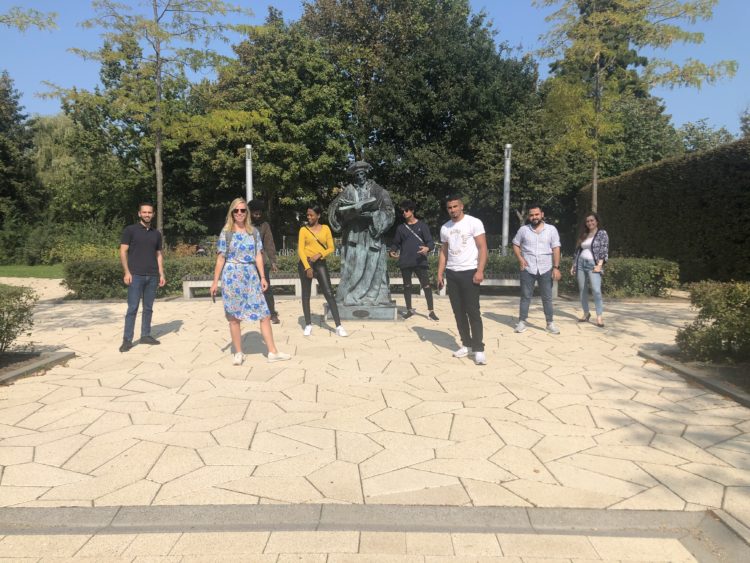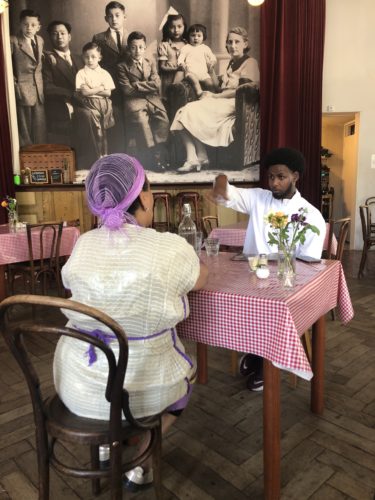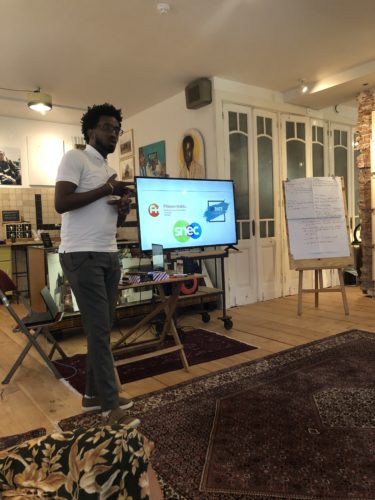
MYLIFE: Migrant Youth-Led Initiatives for Social Inclusion
MYLIFE is a strategic partnership between Fryshuset, Risbo Institute for Research (coordinator), Training and Consultancy and 125Procent in the Netherlands. The project is funded by the EU programme Erasmus+and builds on our previous Erasmus+ RefuEdu project, where strategic partners from seven European countries, Sweden, Germany, Belgium, the Netherlands, UK, Greece and Bulgaria facilitated the exchange of experience and good practice in refugee education among different groups of stakeholders (school staff, policy makers, NGO’s, governmental organizations, refugee and asylum seeking youth) in different countries.
One focus of the RefuEdu project was on additional support: to help NAMS emotional and social needs regardless of their educational path. This is an important aspect of giving young migrants the possibility to live a life where they can make their dreams come true and be fully part of society. In most projects however aspects of becoming socially engaged, socially included are addressed from an educational perspective or from a social (neighborhood)living perspective. MYLIFE will combine these perspectives.
Within this project we aim to work towards a methodology for the social inclusion of NAMS, combining the learning environments from projects that aim to get NAMS prepared for school with social neighborhood projects. With the goal to come with one initiative that addresses both perspectives. Youth-driven activities are the key component in realizing this vision of enabling youth to change the world through their passions. The activities of the project offered to NAMS are based on the motivation that comes from within, driven simply out of young people’s desires and pleasures. This through the use of Credible messengers as individuals with relevant life experiences whose role is to help to support the inclusion of their peers.
The projects aims to use promising elements of two NAMS-led projects (1) a promising summer school for NAMS aimed at better integration into education form in the Netherlands. And (2) NAMS-led sports and cultural activities at Fryshuset where NAMS are encouraged and given the responsibility to lead these activities which builds knowledge and self-esteem that elevates their inherent power. By involving youth in different processes and provide them with tools and knowledge we promote NAMS’ empowerment in helping them shape their own future. In this way, the methodology will be relevant and attractive for both NAMS and other youth .Both initiatives can benefit from each other and incorporated best working mechanism into a method that both stimulate social and educational integration.
With this project, we have the following three objectives:
- Exchange of experience of young status holders on youth-led projects to support social and educational inclusion of young migrants in Sweden and the Netherlands.
- To develop a methodology framework for pro-active inclusion for all NAMS and migrant youth in youth work.
- Knowledge and capacity building of youth workers and migrant youth to implement the new methodology into youth work.
The profile of the participants will be a core group of ten NAMS (aged18 -26years) with experience in initiating and running youth-led projects in Sweden and theNetherlands. Contacts with the participants have been made through the ongoing project RefuEdu. They will be involved in developing the content of the events prior, during and after each event, based on guidelines provided by the project partners. The goal is to provide a learning environment where participants can learn from each other and share their view on the challenges and possibilities of running their projects which will help them to identify key learning elements of these migrant youth-led projects. Together with the project partners they will develop short films of migrant youth experiences, build a comprehensive methodology for social inclusion, test the method in two case studies and finally creating an interactive toolkit for migrant-youth led initiatives for social inclusion.
The TOOLKIT will be interactive, open source available, so transferability to EU countries where youth workers can implement the ideas and method for a comprehensive approach of promoting social inclusion throughout their work in EU countries.


